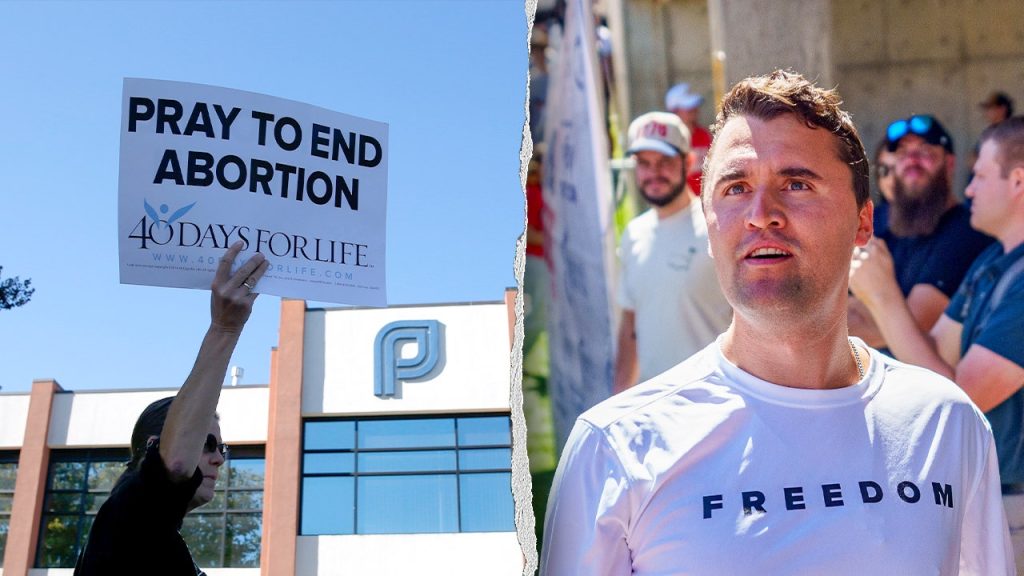Honoring Charlie Kirk: A Legacy of Freedom and Activism
In a solemn ceremony that touched the hearts of many conservatives across America, President Donald Trump posthumously awarded the Presidential Medal of Freedom to Charlie Kirk, the late founder and CEO of Turning Point USA. The honor came just over a month after Kirk’s tragic assassination, on what would have been his 32nd birthday. Kirk, known for his unwavering conservative principles and pro-life advocacy, left behind a powerful legacy that continues to inspire a new generation of activists. His willingness to engage in difficult conversations, his authenticity, and his commitment to free speech made him a respected figure among young conservatives, and his untimely death has paradoxically energized rather than dampened the movements he championed.
Shawn Carney, who leads the pro-life organization 40 Days for Life, expressed deep appreciation for President Trump’s decision to honor Kirk with the nation’s highest civilian award. “It was so beautiful to see him honor Charlie,” Carney told Fox News Digital. “He represented freedom, and there would be no pro-life movement without free speech.” This sentiment underscores the intrinsic connection between the values Kirk stood for and the movements he supported. Free speech wasn’t merely an abstract principle for Kirk—it was the foundation upon which he built his advocacy and the means through which he engaged with people across the political spectrum. Carney highlighted that Kirk’s commitment to these values was total: “It’s what Charlie gave his life for, and it was really, really beautiful for all pro-life Americans to see him honored with the highest honor we have in our nation.”
What set Kirk apart from many political activists was his unique approach to dialogue and debate. Despite his strong convictions, he maintained an approachable demeanor that allowed him to connect with people who might otherwise be unreceptive to conservative viewpoints. “Charlie was open and was honest, and he was also humble and willing to talk to you,” Carney observed. This accessible quality proved especially important in the realm of pro-life activism, where emotional sensitivities run high. As Carney explained, “So many people have been hurt by abortion. So many people feel strongly in support of reproductive rights. And you just can’t go in and yell or say you’re going to burn in hell. You have to be approachable, you have to use reason, you can’t be afraid to share your faith, as Charlie wasn’t.” Kirk’s ability to navigate these difficult conversations while remaining true to his principles earned him respect even from those who disagreed with his positions.
Perhaps the most powerful testament to Kirk’s impact comes from the surge in activism following his death. Rather than retreating in fear after the assassination, many young people—especially those familiar with Kirk and his work—felt compelled to step forward and continue his legacy. Carney reported a remarkable 36% increase in participation in 40 Days for Life campaigns following Kirk’s death, with many new participants citing Kirk’s influence as their motivation. “We had so many young people come out… who knew who Charlie Kirk was, and were inspired by him to participate in 40 Days for Life, who then brought their parents out to pray at our vigils,” Carney said. One young woman overcame years of hesitation about participating in pro-life activism after Kirk’s death, saying she had previously been “so afraid” but now felt called to action. Similarly, a TPUSA chapter leader, despite his mother’s concerns about his involvement in politically charged organizations, insisted that “Charlie would have wanted him to speak out and not to run from culture wars.”
The ripple effects of Kirk’s life and death extend beyond just increased numbers at events. There’s a qualitative change in how participants approach activism, with many embracing Kirk’s courageous spirit. When Carney was asked what message Kirk would have for pro-life activists today, his answer was simple yet powerful: don’t give up. Newcomers inspired by Kirk frequently express that they believe he would want them to be outspoken and refuse to “cower” in the face of opposition. This sentiment reflects Kirk’s own approach to activism—one characterized by bold engagement rather than retreat. The Presidential Medal of Freedom ceremony itself became a moment of renewed commitment for many in the movement, with Kirk’s widow, Erika, later sharing the medal with TPUSA staff members, telling them, “You guys are all part of the legacy.”
In today’s polarized cultural landscape, Kirk’s example offers a template for effective advocacy that combines conviction with connection. “Right now in our culture, there’s a lot of reasons to be afraid, we can’t give in to them, we have to go out, we have to speak the truth and love, and that is what changes hearts and minds, and that’s the best way we can honor Charlie,” Carney reflected. This approach—speaking truth with love rather than hostility—represents the essence of Kirk’s contribution to American political discourse. While his assassination at such a young age cut short a promising career, the response to his death suggests that his influence will continue to shape conservative activism for years to come. As young people inspired by his example step forward to participate in public discourse, they carry forward not just his political positions but his commitment to engaging with difficult issues honestly, humbly, and without fear—a living memorial perhaps more meaningful than even the Presidential Medal of Freedom.















